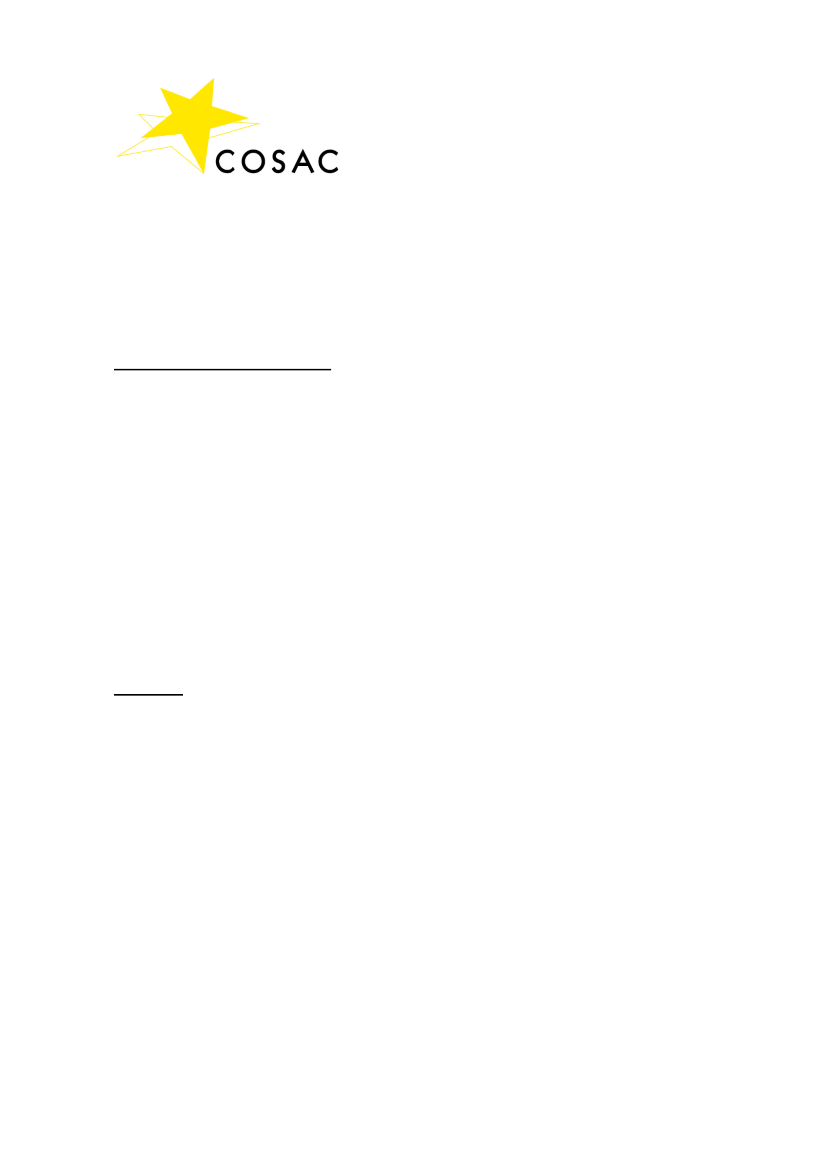
MINUTES OF THE MEETING OF THE PRESIDENTIAL TROIKA OF COSAC
P
RAGUE
, C
ZECH
R
EPUBLIC
, 11 J
ULY
2022
PRESENT AT THE MEETING
CHAIR: Mr David SMOLJAK, Chair of the European Affairs Committee of the Czech
Senát;
Mr Ondřej BENEŠÍK, Chair of the European Affairs Committee of the Czech
Poslanecká sněmovna;
Mr Pyry NIEMI, Chairman of the Committee on EU Affairs of the Swedish
Riksdagen;
Mr Pieyre-Alexandre ANGLADE, Chair of the European Affairs Committee of the
French
Assemblée nationale,
Mr Jean-François RAPIN, Chair of the European Affairs
Committee of the French
Sénat;
Mr Othmar KARAS, First Vice-President, European Parliament;
(Mr Antonio TAJANI, Chair of the Committee for Constitutional Affairs, European
Parliament, was unable to attend).
AGENDA
PROCEEDINGS
1. Adoption of the agenda of the Meeting of the Presidential Troika of COSAC
2. Approval of the draft programme of the COSAC Chairpersons’ Meeting
3. Debate on the draft programme for the LXVIII COSAC
4. Approval of the Outline of the 38th Bi-annual COSAC Report
5. Letters received by the Presidency
6. Any other business
1
2
2
3
3
6
6
1